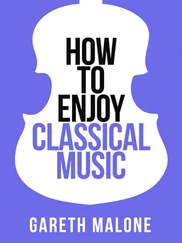STEPHEN FRY - OF CLASSICAL MUSIC
Здесь есть возможность читать онлайн «STEPHEN FRY - OF CLASSICAL MUSIC» весь текст электронной книги совершенно бесплатно (целиком полную версию без сокращений). В некоторых случаях можно слушать аудио, скачать через торрент в формате fb2 и присутствует краткое содержание. Жанр: на английском языке. Описание произведения, (предисловие) а так же отзывы посетителей доступны на портале библиотеки ЛибКат.
- Название:OF CLASSICAL MUSIC
- Автор:
- Жанр:
- Год:неизвестен
- ISBN:нет данных
- Рейтинг книги:5 / 5. Голосов: 1
-
Избранное:Добавить в избранное
- Отзывы:
-
Ваша оценка:
- 100
- 1
- 2
- 3
- 4
- 5
OF CLASSICAL MUSIC: краткое содержание, описание и аннотация
Предлагаем к чтению аннотацию, описание, краткое содержание или предисловие (зависит от того, что написал сам автор книги «OF CLASSICAL MUSIC»). Если вы не нашли необходимую информацию о книге — напишите в комментариях, мы постараемся отыскать её.
OF CLASSICAL MUSIC — читать онлайн бесплатно полную книгу (весь текст) целиком
Ниже представлен текст книги, разбитый по страницам. Система сохранения места последней прочитанной страницы, позволяет с удобством читать онлайн бесплатно книгу «OF CLASSICAL MUSIC», без необходимости каждый раз заново искать на чём Вы остановились. Поставьте закладку, и сможете в любой момент перейти на страницу, на которой закончили чтение.
Интервал:
Закладка:
MISS BRAHMS AND MISS OUT!
h, the days of Are??? Being Served? What heady times. But less. of that and more of the man of die moment, Eduard Marxsen. How so? Bear with me a moment.
Marxsen was a pianist, organist, teacher and minor composer born in Nienstadten in Germany to musical parents. From an early age, he helped his dad out on the organ at the same time as learning to play it, alongside die piano. I don't mean he would only play die organ if it was situated alongside die piano, I mean merely it was just one of the strings to his bow. He then settled - actually, he didn't play the violin, nor indeed any stringed instrument, so far as I know, so I wouldn't want die 'strings' and 'bow' reference to imply that he did, sorry - he settled in Hamburg as a teacher. It was here - AND FINALLY WE GET TO THE POINT - that one of his pupils was a littie boy called Jo.
Jo was a good pupil. So good, tiiat when Mendelssohn died in 1847, Mr Marxsen was moved to say, and I quote, 'A master of the art is gone. A greater one arises in…'… Litde Jo. OK, so he didn't say Litde Jo - tiiat's just me, trying to keep you in suspense. He actually said, a full twenty-nine years before Little Jo had written his first symphony, '…a greater one arises in Brahms'. Well, wasn't he a clever litde sausage? There can't be many people who can spot a genius that far in advance, and be prepared to go public with it. So what was Brahms doing to justify the faith diat had been placed in him by his former teacher? As we know, he's now given up work at the Gesellschaft der Musikfreunde - presumably because he hadn't sold a single gazelle. The plan had been tiiat he would compose full time, and, to be fair, so far it's all been going swimmingly. He spends most summers at Clara Schumann's place in Baden Baden/ In fact, some people were even saying that Litde Jo was in love witii Robert's widow, but, well, I don't think tiiat's strictly true. And even if he was, there's no evidence to suggest that anydiing ever happened. In fact, I don't think he even managed to cop a feel.?"•* They just seem to write to each other a lot, spend lovely summers together, and that's about it. Brahms also does a lot of writing at Ishcl, scene of the Great Vowel Robbery, where Johann Strauss II (just when you thought it was safe to step on die dancefloor) had a villa. What witii tiiat and a love affair with Italy, which results in him going back as often as he could, well, it's not long before a very, very happy Johannes Brahms has another masterpiece on his hands. I say not long - 1882, to be precise - and it's anodier piano concerto, one of the hardest in the concert pianist's repertoire. And, so very cutely, Brahms decides to dedicate it to who else but…? Clara? No. Johann Strauss II? No.
He dedicates it to his one-time teacher and lifelong friend, Eduard Marxsen. HOW CUTE IS THAT? What a cuddly, larger than life-size bear of a man he was.
TWELVE MINUTES PAST SIX. TIME FOR AN OVERTURE
fi I heard you the first time. fifi The publishers would like to apologize for the coarseness of this line, especially applied, as it is, to one of the world's great composers. They in no way would like it to be inferred that either Brahms or Mrs Schumann were, in any way, the sort of composers to ever try and 'cop a feel3. Indeed, some of the publishers3 best friends are composers, and only a small percentage - certainly under 10-have ever tried to (cop a feel3 with the said publishers. Thank you. ?, 1882 was proving to be, all in all, not a bad year, really. Brahms unveiled his forty-five-minute-long finger-crunching piano concerto, Mr and Mrs Stravinsky gave birth to a bouncing baby boy, Igor - whose first words were no doubt a wisecrack about how awful the music was on his wind-up toy - and Gilbert and Sullivan produced Iolanthe in London. OK, two out of three isn't bad/ But let's not forget, also in 1882, that a fresh-faced, twenty-year-old Debussy produced one of his earliest works, the aptly entitled Spring.
Just to digress for a moment, in 1882 Debussy had a job teaching piano to the children of a wealthy woman of some standing, not to mention a fair amount of sitting down. He had been hired to play four-hand piano with them and tutor them, as well as going on holiday with them and generally being their musical 'man about the house!' But here's the thing.
THE THING
,J!L old you. The woman in question, who was paying Debussy a tidy sum to play chopsticks with her kids every Sunday, was…? None other than Nadezhda von Meek. And if that name seems familiar, it's probably because she was the woman who was bankrolling Tchaikovsky, but would never allow the two of them to meet. And if the name seems wwfamiliar, well, she was still the woman who was bankrolling Tchaikovsky, but would never allow the two of them to meet. In fact, come to think of it, maybe that's why she wouldn't have him round to hers - because she was embarrassed about having old Debussy in the back room, knocking out Marche Militain with her ten-year-old. Then they might have to have that awkward, subdued conversation, 'So… you're patronising other men, are you?' 'Peter, I tried to tell you, in the middle of a 13/8 bar, but… well, it was never a good time.' In fact, who knows, if Tchaikovsky had opened the cupboard under the stairs, for all I know Grieg or Bizet might have ft Apologies, apologies - that was an awful, cheap wisecrack about the music of G and S, and I take it back. But only in the small print. fallen out - now that would have been a little tricky to explain to the vicar over barm cakes. Still. That's only a personal theory, so let's not go spreading it beyond these four page-walls.
Back to 1882, now. World-wise, as it were, there's a very cosy Triple Alliance going on between Italy, Austria and Germany; the British have occupied Cairo - with a wordsearch, I think - and Edison has opened the first ever hydro-electric plant. The big book of the year is Treasure Island - actually, just think, for a moment, if that book had come out today. The merchandising and marketing men would have a field day - toy island, interactive treasure games on X-Box, everything. The big picture of the year is Manet's Bar aux Folies Bergere and the big deal of the year is that Queen Victoria has given Epping Forest to the nation. How jolly kind, ma'am. Maybe she got wind of the Central Line opening up. Otherwise, Longfellow, Trollope and Rossetti have all died, and Charles Darwin has simply stopped evolving. Musically speaking - or singing, to give it its proper name -Wagner conducts the first performance of his newly revised 'stage-consecrating festival play', Parsifal. Of course, if you are a member of Planet Earth, you may prefer to say 'opera'. And last, but by no means least, Tchaikovsky comes up with a little something.
In fact, let me write in hushed tones, because Tchaikovsky has come up with a reserved little number to consecrate the Temple of Christ the Redeemer in Moscow, a very evocative, holy place - still and calm, even. Can you imagine, then, the first performance, back in 1882? In the temple, the crowd, still hushed, are, at first, moved, not just by Tchaikovsky's introduction but by the general atmosphere of candles, semi-darkness and incense, but also by the fact that he has incorporated an old Russian hymn, 'God, preserve thy people', into the music. Lovely. One craggy-faced elderly woman, dressed in black, turns to her neighbour - a craggy-faced elderly woman, dressed in black - and smiles a half-smile in approval. Lovely. And doesn't the temple look nice? Just as the congregation are settling into their seats, Tchaikovsky decides to, how shall I put it? Well, he paints a musical picture of THE BATTLE OF BLOODY BORODINO! Complete with the 'Marseillaise' and 'God save the Tsar' fighting with each other for the Tackiest Sequence in Music award. In fact, just when our two old ladies think it's safe, he goes and wheels out the bloody cannons! Just quite what was he thinking of?
Читать дальшеИнтервал:
Закладка:
Похожие книги на «OF CLASSICAL MUSIC»
Представляем Вашему вниманию похожие книги на «OF CLASSICAL MUSIC» списком для выбора. Мы отобрали схожую по названию и смыслу литературу в надежде предоставить читателям больше вариантов отыскать новые, интересные, ещё непрочитанные произведения.
Обсуждение, отзывы о книге «OF CLASSICAL MUSIC» и просто собственные мнения читателей. Оставьте ваши комментарии, напишите, что Вы думаете о произведении, его смысле или главных героях. Укажите что конкретно понравилось, а что нет, и почему Вы так считаете.










